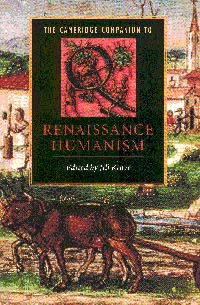Book contents
- Frontmatter
- 1 The origins of humanism
- 2 Classical scholarship
- 3 Humanism in script and print in the fifteenth century
- 4 The humanist reform of Latin and Latin teaching
- 5 Humanist rhetoric and dialectic
- 6 Humanists and the Bible
- 7 Humanism and the origins of modern political thought
- 8 Philologists and philosophers
- 9 Artists and humanists
- 10 Vernacular humanism in the sixteenth century
- 11 The new science and the traditions of humanism
- 12 Humanism and Italian literature
- 13 Humanism and English literature in the fifteenth and sixteenth centuries
- 14 Humanism and seventeenth-century English literature
- A guide to further reading in English
- Biographical index
7 - Humanism and the origins of modern political thought
Published online by Cambridge University Press: 28 May 2006
- Frontmatter
- 1 The origins of humanism
- 2 Classical scholarship
- 3 Humanism in script and print in the fifteenth century
- 4 The humanist reform of Latin and Latin teaching
- 5 Humanist rhetoric and dialectic
- 6 Humanists and the Bible
- 7 Humanism and the origins of modern political thought
- 8 Philologists and philosophers
- 9 Artists and humanists
- 10 Vernacular humanism in the sixteenth century
- 11 The new science and the traditions of humanism
- 12 Humanism and Italian literature
- 13 Humanism and English literature in the fifteenth and sixteenth centuries
- 14 Humanism and seventeenth-century English literature
- A guide to further reading in English
- Biographical index
Summary
Before the beginning of the sixteenth century, the humanist movement produced no political thinkers who could be ranked with figures like Plato or Thomas Hobbes. This is not surprising. Unlike modern political scientists or medieval scholastic philosophers, Renaissance humanists were not occupied with political theory as such. Professionally, humanists acted as teachers, diplomats, political propagandists, courtiers and bureaucrats. The writings they produced on politics were not cast in the form of summae or professional monographs intended for specialized audiences. Rather, they fell into the ancient tradition of moral-rhetorical literature aiming at the reform of individuals and society. Their models were Cicero and Seneca, not Aristotle or Thomas Aquinas; their virtues stylistic elegance, urbanity and learning, not subtlety. Such writings were intended for a general audience of liberally educated readers, which under Renaissance conditions meant mostly wealthy merchants, professionals and aristocrats. But 'political reflection need not be systematic analysis, and rarely is', as Sir Moses Finley has remarked. Though the humanists of the fourteenth and fifteenth centuries produced no great work of political philosophy, they did change fundamentally the intellectual world within which political thought would henceforward have to live. Their importance lay in producing not a system of thought, but a climate of thought.
- Type
- Chapter
- Information
- The Cambridge Companion to Renaissance Humanism , pp. 118 - 141Publisher: Cambridge University PressPrint publication year: 1996
- 12
- Cited by



